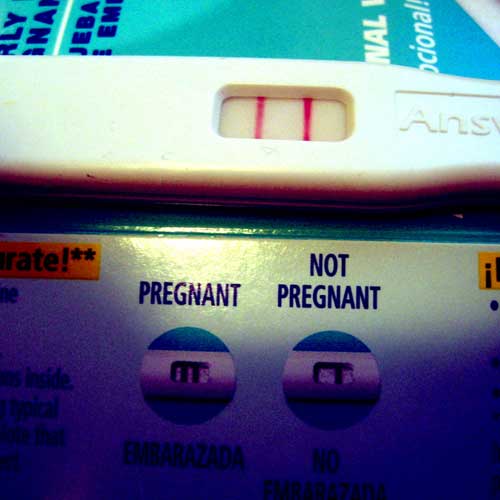For most women who have been waiting to become pregnant, an early pregnancy test is crucial to ascertain whether they will test positive or not. The answer to the question whether or not you are pregnant is quite a revelation and the feeling cannot be described in words.
However, frequent tests could get costly and disappointing especially if they’re negative each time. So when is the right time to take an early pregnancy test with the least expense and disappointment?
Let’s find out how they work and just how body alterations take place in an individual at the beginning of pregnancy.
How Do Pregnancy Tests Work?
Home Pregnancy Tests have been around for many years now and are easy to pick up from local chemists and supermarkets. They can vary in price from cheap to expensive, you may even be able to pick up free pregnancy tests from your local medical centre.
Pregnancy tests work by taking samples of urine to identify the existence of a pregnancy hormone hCG (Beta Human Chorionic Gonadotropin)
The body begins to create hCG whenever a fertilised egg embeds itself inside the uterus and is transmitted through the cells that will go on to form the infant’s placenta. It may usually be traced in the urine from about 6 to 14 days after fertilisation.
The best thing to do is to wait until a period has been missed and tell tale signs of pregnancy show up prior to testing. In such a case an early pregnancy test would provide a confirmation of what was felt by you in the first place.
But then women looking to conceive may usually be in a tearing hurry to take an early pregnancy test and may be ready to do so right after having sex!
When Is the Earliest a Pregnancy Test Can Be Done?
The accuracy of an early pregnancy test can easily be doubted. Fertilisation of the egg through sperm may take 5 days if sexual intercourse occurs at the right time. There is a right time for it because fertilisation may not be possible once the egg starts to disintegrate 24 hours subsequent to ovulation.
About 5 to 7 days after ovulation has occurred the egg is implanted in the lining of the uterus after traveling down the fallopian tube. You must wait for an increase in hormonal levels in order for it to be detected correctly. Also remember not to consume too much of water when you are going to get a test conducted because it can show a lower count of hCG in your urine sample. hCG is a pregnancy hormone that doubles itself every 48 to 72 hours. In fact you should test for it every second day.
The earliest that you can test is 7 days past ovulation because the implantation would not have occurred any sooner than that. The medical terminology for it is 7 Days Past Ovulation or 7 DPO in short. Even 7 DPO may be early – it could be the right time only if you are sure about the day when the ovulation took place. Getting a test done between 9 and 10 DPO is also quite optimistic although it comes within the “5 days before your missed period” duration. In fact, many women test later than that.
12 to 14 DPO is the best tome to go for a pregnancy test. Alternatively it could be just before your period begins. At this time the egg is well implanted and hormones have been produced as needed which will then show a positive test result.
In the event of having an ectopic pregnancy, a situation where the pregnancy has occurred outside the womb, the hormonal levels may not show a positive result. Some women wait until 15 to 18 DPO before they take a test or at least until some time has elapsed. There are cases where women don’t take a test until several days later.
Are All Pregnancy Tests the Same?
Pregnancy tests vary in the degree of sensitivity. A truly sensitive test will show a positive result after detecting even a small level of hCG. mIU/ml or milli-international units per millilitre is the terminology that is used to report the level of hCG. A level of 20 mIU/ml is more sensitive than tests with 50 mIU/ml.
Will the Tests Be Accurate?
The tests will be accurate provided you follow the instructions. Be aware that you will test a false positive if it is too early since not enough hormones would have been produced in the body. Hence you should wait for at least 4 to 5 days before testing again. Though rare, it is also possible that even if the test shows you as being pregnant it could be a case of being false positive. Medicines containing hCG may influence the test results.
Here at Zoom Health we offer a wide variety of high-quality, affordable early pregnancy tests.
Photo Credit: “its true” (CC BY 2.0) by Josh Parrish
Zoom Health is a leading UK supplier of Home Health Tests and Earplugs
This post was originally published in 2018 and has been regularly updated since.





